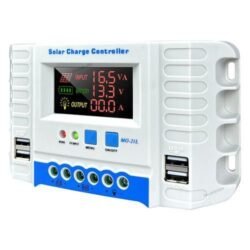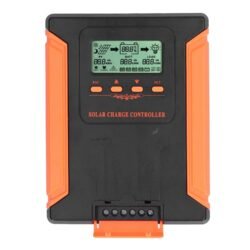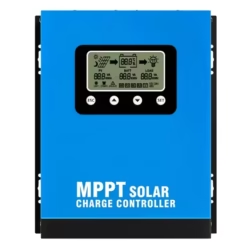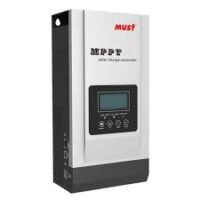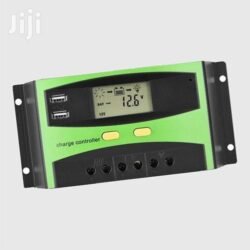Solar Charge Controllers-
Pulse Width Modulation (PWM) or Maximum Power Point Tracking (MPPT)
A solar charge controller is an electronic device that regulates and manages the voltage and current coming from solar panels to the batteries and electrical loads in a solar power system.
Solar Charge Controllers
Solar Charge Controllers
Solar Charge Controllers
Solar Charge Controllers
MPPT Solar Charge Controllers: 40A, 50A, 60A, 80A, 100A, 120A
Solar Charge Controllers
Solar Charge Controllers
PWM JSOT Solar Charge Controllers: 10A, 20A, 30A, 40A, 50A, 60A
Solar Charge Controllers
Solar Charge Controllers
Solar Charge Controllers
Solar Charge Controllers
Solar Charge Controllers
Solar Charge Controllers
In a solar system, charge controllers ensure the batteries are charged efficiently without being overcharged, which extends battery life and protects the system. Charge controllers typically use either Pulse Width Modulation (PWM) or Maximum Power Point Tracking (MPPT) technology to optimize energy harvesting from solar panels. There are two main types of charge controllers:
- PWM charge controllers: simpler and cost-effective, they regulate charging by switching the current on and off.
- MPPT charge controllers: more advanced and efficient, they track the maximum power point of the solar panel and adjust the charge accordingly, increasing the energy harvested.


